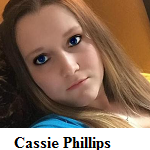How Safe Is Google Drive?
Google Drive is a great place to store your files, whether you’re using it just for the purposes of backing them up or for the ease of being able to access them on another device without using hardware. Compared to some of the similar services available, Google Drive gives you more storage space for free, starting you off with 15GB of space, whereas one of their competitors, Dropbox, only gives you 2GB.
This makes Google Drive a better option for those who don’t need to store everything and the kitchen sink, but if you’re a business and need to store more than 1 TB worth of files, Google Drive won’t come with a small price tag. Either way, are these services—Google Drive in particular—actually safe?
Unfortunately, relying on any service can come with security risks, but that’s not a reason to avoid using them. There are steps you can take to make your experience more secure overall. Here are a few ways you can do that, as well as some information about the safety of Google Drive.
Security Starts With You
Whether you’re using Google Drive or any other service, security starts on your end. I’m talking about your login credentials. Anyone with them can access everything there is to access on your Google account (which includes your Google Drive files). Maintaining the secrecy of it is very important, but it’s much harder than some services because anyone with your email address has your username.
What you need is a strong, hard to guess password that you can remember well. Such a password is usually going to be at least eight characters long and include a mixture of uppercase and lowercase letters, as well as numbers and sometimes symbols. A passphrase may be a good option, as it can be longer, yet easier to remember. Avoid using single words alone, as they’re easier to guess.
It’s also important to keep that password from prying eyes; don’t write it down where anyone else can see it, and avoid reusing it on other sites. When you reuse passwords, if your account gets hacked, the hacker can then easily access any of your other accounts that share the same password. Use security software, such as a Virtual Private Network (VPN) and an anti-virus program to avoid being hacked or having your password stolen.
Security Software
A Virtual Private Network keeps you safe by encrypting your connection once you’ve connected to a remote server; this prevents your password or other data from being “intercepted” as it’s unreadable to outside eyes as a result of the encryption.
It also allows you to use public WiFi without fear of being hacked or misled, or from being targeted based on your IP address, as VPNs hide this information. Secure Thoughts has a handy guide for deciding what VPN is the best for your needs (speeds, prices and service vary).
Anti-virus software is good for when you fall for one of the many download “traps,” usually due to clicking on something disguised as being safe; hyperlinks in emails or on social media can be malicious as a result of someone else’s account being stolen and used to steal other accounts by sending fake links.
Logout
In an increasingly always online world, the convenience of being continuously logged in sometimes can become a very real danger to your accounts. To keep you from constantly having to enter your password, services sucha s Google Drive often stay logged in once you’ve put the password in once.
For PCs, it means that anyone who uses the same computer as you can easily access anything stored on your Google account (which naturally includes Drive). Simply walking away from the computer without logging out means your files are completely vulnerable. The same goes for any mobile devices; leaving your tablet or phone unattended could be a recipe for disaster if you’re storing anything important online.
I wouldn’t exactly say this vulnerability is Google’s fault; staying logged in all the time is primarily a convenience to make your life easier. But used incorrectly, it can land you in a world of trouble. Particularly for such an all-encompassing account, be sure to log out when there’s any chance at all someone else could access your account.
With your end taken care of, the question becomes whether or not you can trust Google.
Your Files, Your Right?
Thankfully, Google does not claim ownership of any files you store on Google Drive. If you’ve been using it to store your million dollar script, don’t worry; their Terms of Service specifically states that “You retain ownership of any intellectual property rights you hold.” So, you don’t have to worry about the company itself stealing or selling anything in that respect.
That fact does not hold true for government entities. Like other technology companies, Google is subject to laws that require them to surrender data to authorities in some countries. That means anything sensitive might not be truly safe on Google as it could easily be subject to search and seizure.
Google has no special loyalty to you, so don’t expect them to fight for the integrity of your data. It may be best to keep personal files or confidential information on physical storage (although physical storage can be stolen too).
The Plus
Google Drive definitely does come with a few security “additions” to combat an increasingly insecure internet. Their service monitors login attempts based on geography, which can alert you that someone is attempting to (or has been) accessing your account. It won’t tell you who, but it’s a good warning that you may want to change your password.
For anyone seeking an extra layer of security, Google has the 2-Step Verification login. You’ll need to not only enter your password, but also provide a temporary code sent to your phone in a text message. If you’re using a secure, personal computer, you can choose to make it a trusted device (never need the code again); if not, you can require the code every time, in the case of using a more publicly accessible device.
Just be sure to logout when you’re done.
Drive For Success
In spite of suffering from the same vulnerabilities other storage services suffer from, Google Drive isn’t any worse for it. Considering the convenience and amount of free space, it’s hard to pass up the Drive. For things such as pictures and files without sensitive information, Google is an excellent place to store things online.
However, anything you wish to keep truly secure might need to be left out. This goes for nearly anything online; the internet is decidedly not a secure place to store sensitive data. Physical media is still the best place to store anything you don’t want stolen, and even more so if it isn’t connected to the internet.
What are you doing to keep your online storage safe? Are you using
, or perhaps something else? Tell us in the comments.
Author Bio
Cassi e Phillips is a technology blogger who emphasizes in internet security and data privacy. She enjoys sharing tips, tricks and tech news with her readers.
e Phillips is a technology blogger who emphasizes in internet security and data privacy. She enjoys sharing tips, tricks and tech news with her readers.
Check out her other articles by following Cassie on : Twitter
Follow Cassie Phillips : GooglePlus














Leave a Reply